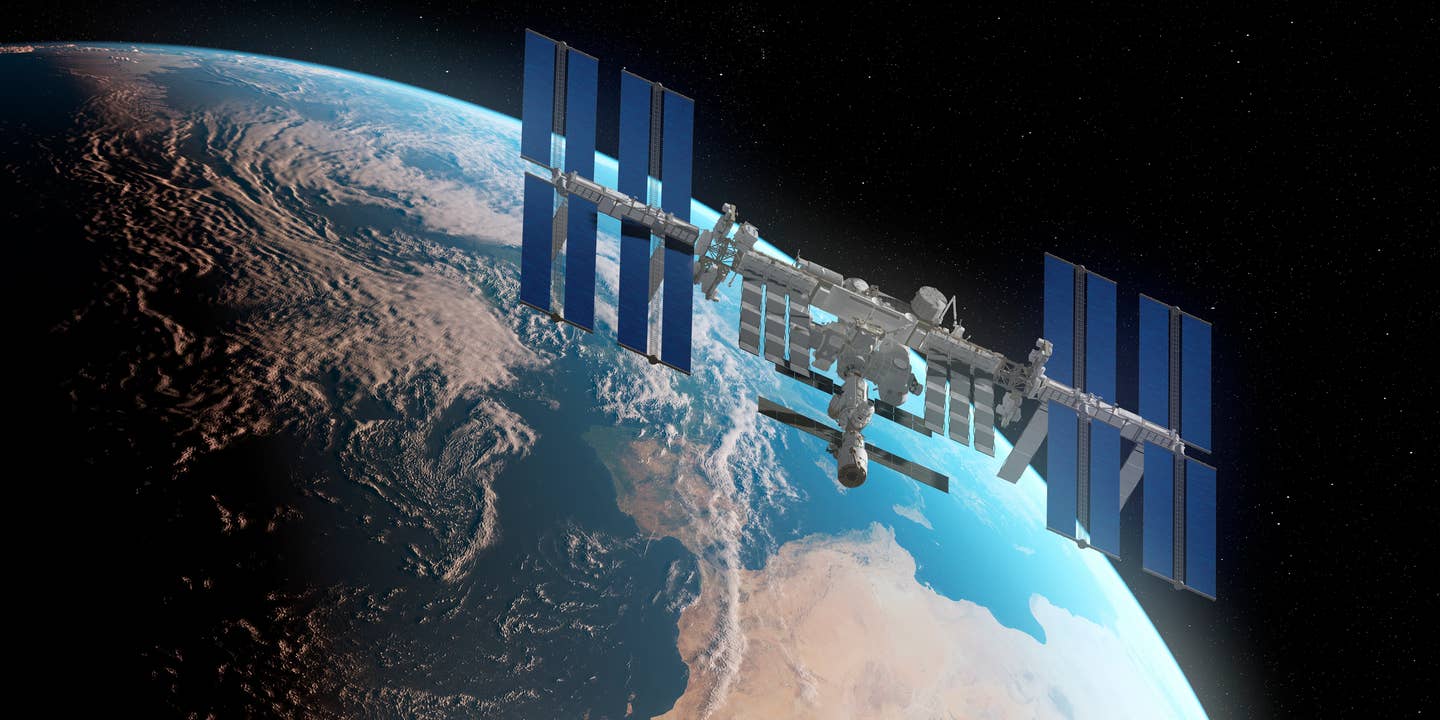
SpaceX Testing Vegan Protein Made From Fungi on the International Space Station
The words “Space food” may conjure images of unappetizing, dehydrated vacuum-sealed meals in reflective packaging. SpaceX is changing that, launching a new type of protein into space, one that can be used to make burgers and other types of palatable meals, made of fungi.
The plan is to bring along on the next mission a type of "protein growing" incubator, which is Nature's Fynd’s vegan fungi protein bioreactor. The device incubates and grows active fungi that are harvestable and versatile enough to make into several types of foods. The bioreactor will be onboard when SpaceX-25 lifts off. By sending the bioreactor to the International Space Station [ISS}, SpaceX will be able to test new methods of producing sustainable food for astronauts aboard the space station, and in future missions to Mars and beyond.
Food, the Final Frontier
The fungi-in-space partnership marks the latest step in creating food for long missions. It is a collaboration between Nature's Fynd’s and NASA's Established Program to Stimulate Competitive Research, with professors from the University of Colorado Boulder’s Bioserve Space Technologies, and Montana State University.
Nature's Fynd, a Chicago-based company that has investors as diverse as Bill Gates' Breakthrough Energy Ventures and Al Gore's Generation Investment Management, as well as Softbank, and Blackstone Strategic Partners, has raised over $350 million in Series C funding to develop future food systems that are better for the planet. It was first launched after the discovery of edible fungi growing wild in the sulfuric waters near the hot spring at Yellowstone National Park. This space test will challenge whether the fungi will thrive in the created atmosphere of low-Earth orbit and radiation.
“We’re thrilled to announce our role in the revolutionary NASA research to develop a safe, efficient, and robust system for producing fresh food in space,” CEO and Co-Founder of Nature’s Fynd Thomas Jonas said in a statement. Our connection to NASA is deep — Nature’s Fynd started as a research project for NASA, which led us to discover a remarkable microbe with origins in Yellowstone National Park,”
The bioreactor effectively converts feedstock into high-protein fungi that can be used to create different styles of food, including meatless patties, vegan cream cheese, and more. The bioreactor on the space station will allow astronauts to eat high-protein foods that require a fraction of the water, energy, and soil to grow, and with a longer shelf life than animal-based protein. The mission aims to determine how the new nutritional fungi can feed astronauts on extended space exploration missions in the future.
Fy protein contains a balanced nutritional profile: It contains all 20 amino acids as well as a significant amount of fiber. The microbe – called Fusarium strain flavolapis – is turned into protein through simple fermentation. The SpaceX flight is scheduled to reach the ISS 30 days after lift off. Once there, the astronauts will study the technology in orbit
Finding Nature's Fynd’s Protein Source
Scientists and Nature’s Fynd co-founder Mark Kozubal, Ph.D., discovered a microbe on the edges of Yellowstone National Park’s Grand Prismatic Spring back in 2008. The scientists found this new microbe while doing research for NASA and quickly realized that this microbe’s unique qualities could be used to create a nutritional protein. This sustainable resource is promoted as an option to help alleviate the impact our food systems have on the climate crisis, as well as mitigate energy waste.
Nature's Fynd’s protein is currently in the market with several vegan products including Dairy-Free Cream Cheese and Meatless Breakfast Patties and is available in select grocery stores including Whole Foods.
This May, Yellowstone National Park announced that it would begin serving plant-based products at the park, bringing Fy Protein back to its origins. This summer, Yellowstone guests will be able to try plant-based meat at convenience stands serving breakfast with sausage patties made from the fungi.
For more plant-based happenings, visit The Beet's News articles.
More From The Beet






